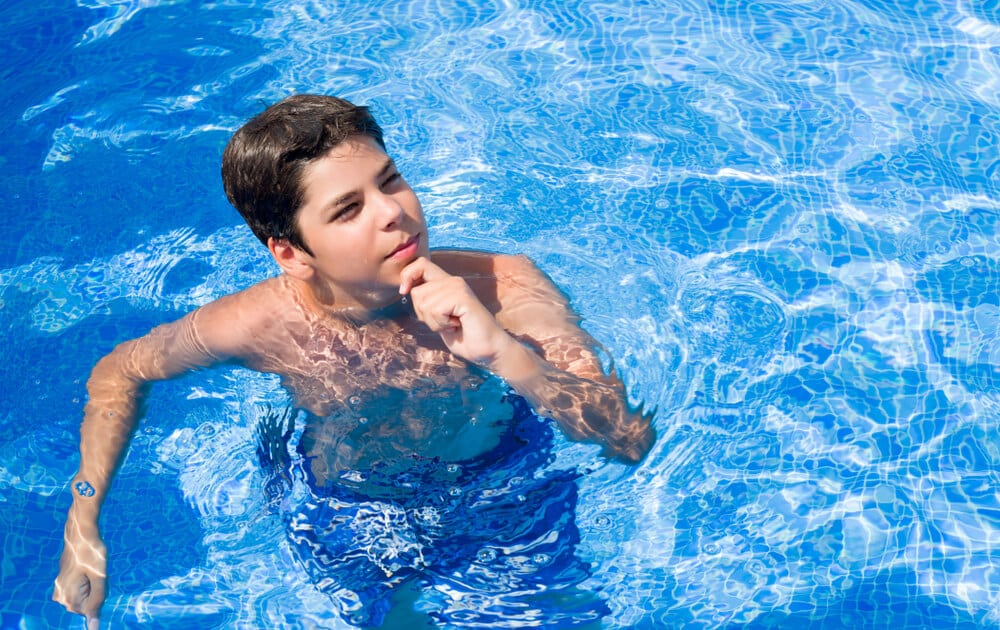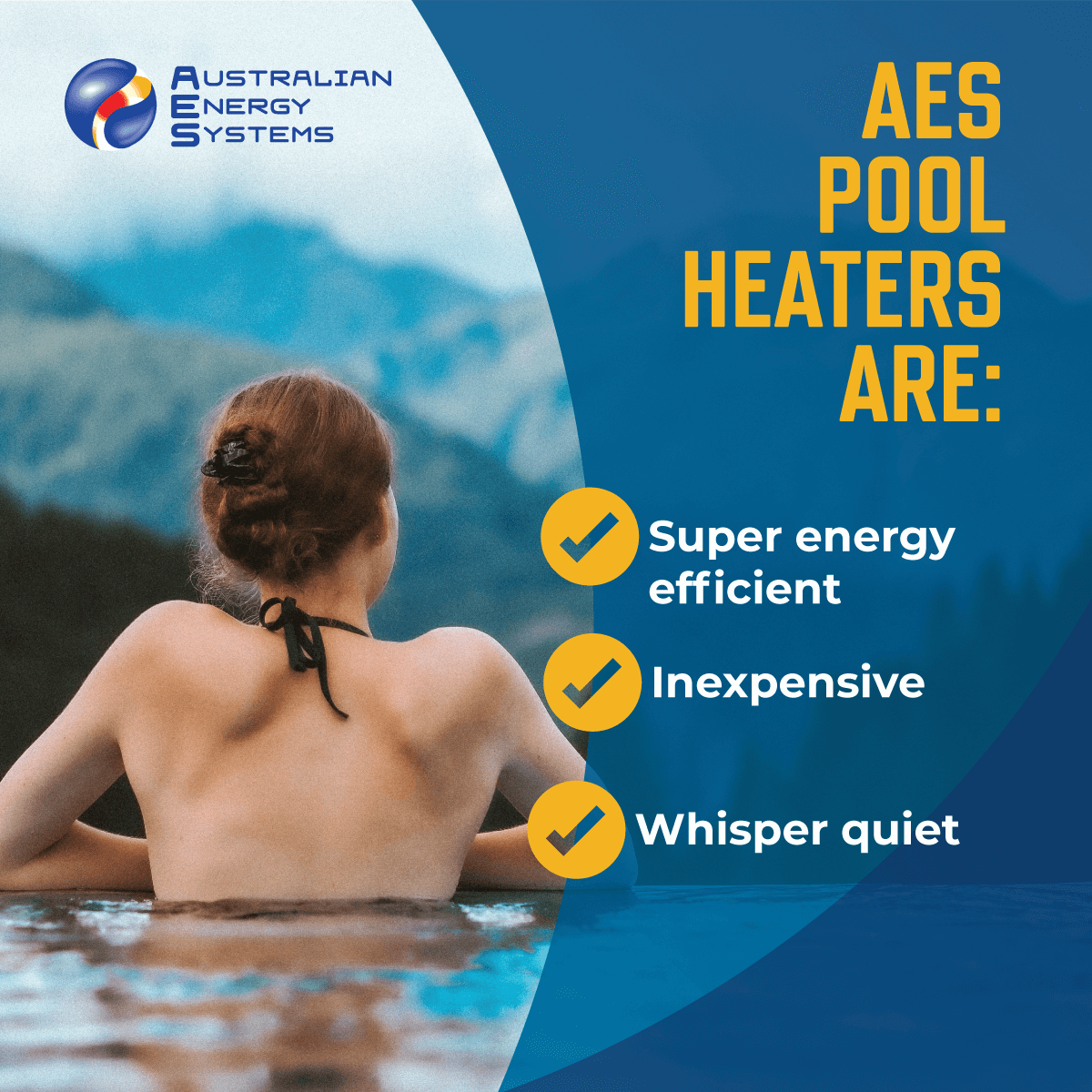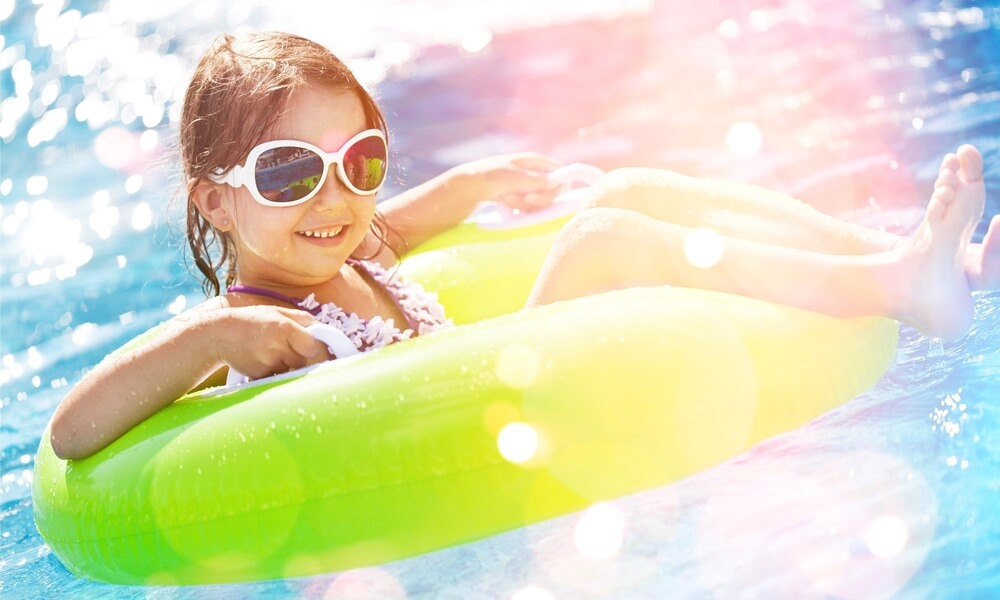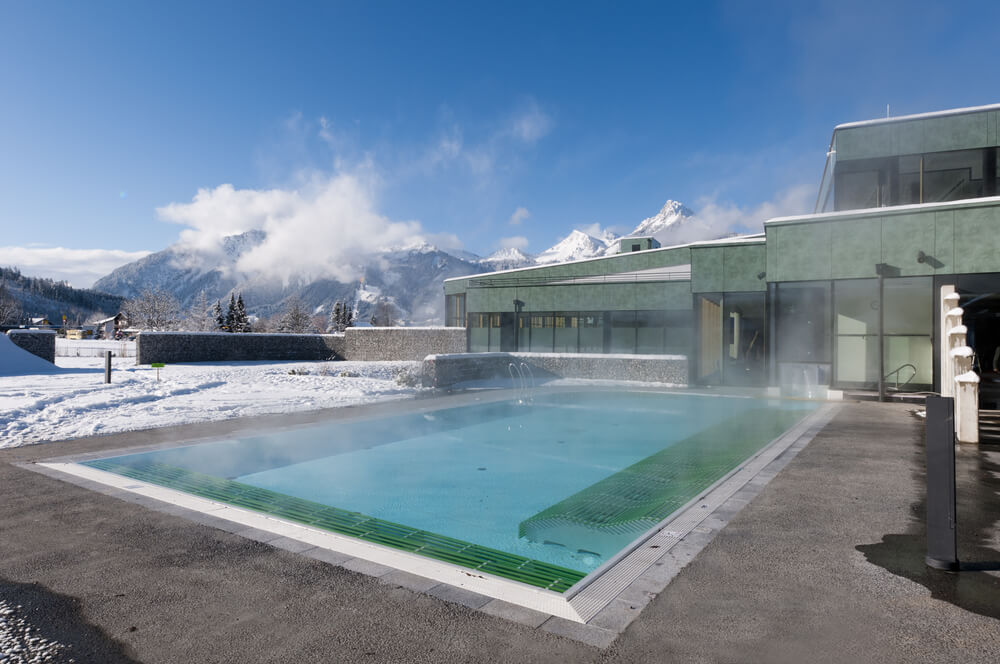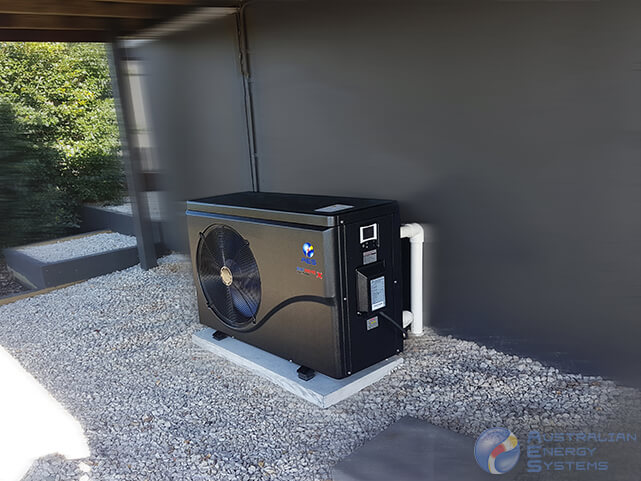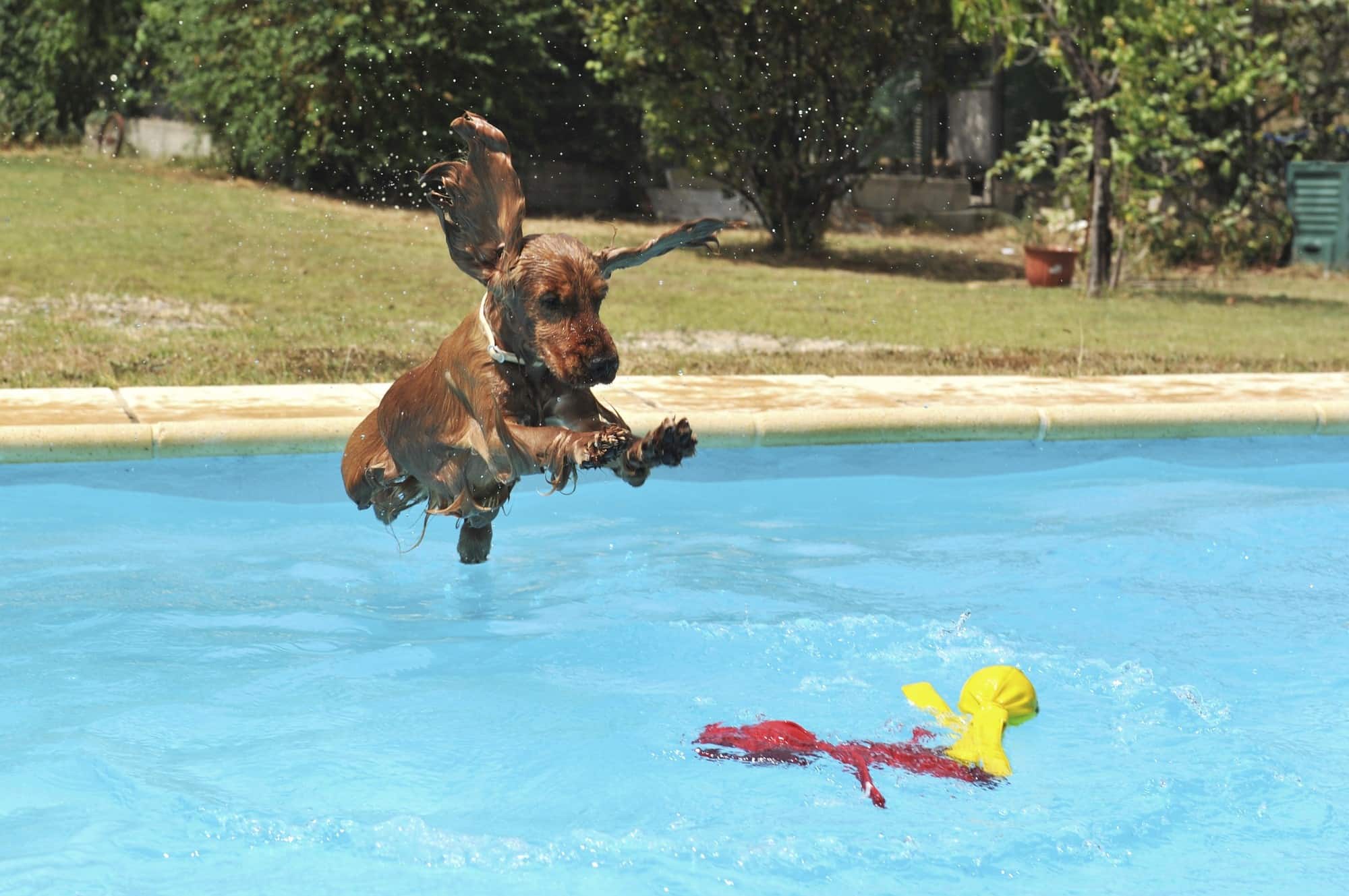Hot summers and the backyard pool are magic. But when the weather turns cold, we sadly cover the pool for another year. But what if you never had to say goodbye to your pool again?
AES Pool Heating Tweet
When temperatures are less than balmy, pool heaters can bring the delight back to your pool for as many extra weeks as you want.
There are three categories of pool heaters: electric, gas and solar. In our experience, electric heat pump pool heaters are the optimal way to make your swimming season longer more enjoyable.
Table of Contents
The electric heat pump: what is it?
The electric heat pump is by far the most common heating system in the backyard swimming pool. Steadfast and wallet friendly, the electric heat pump is an excellent option for the vast majority.
A heat pump is about the same size as a standard air conditioning outdoor unit and is usually installed near the other pool equipment. Installation is simple and can typically be achieved in a day. Units are generally black, white or grey in colour and are available in a variety of sizes and capacities to match your pool size.
Heat pumps can be relied on more than solar and gas systems for delivering heat consistently at the lowest cost. With an electric heat pump, you simply set the desired temperature and know exactly what you’re going to get.
How does it operate?
In very simple terms, a heat pump moves heat from one location (the ambient air) to another (your pool water).
When your pool water reaches your pump, it’s passed over to the heater, where the air from outside is drawn in and passed over an evaporator coil. At this point, the heat is absorbed by a liquid refrigerant, which is converted into gas before being heated further by the compressor, passed onto the condenser, and applied to the pool water.
As it flows through the condenser coil, the hot gas returns to liquid form and back to the evaporator, where the process begins again.
Two models of electric heat pumps are available: on/off pumps heat pumps, and full inverter heat pumps that ramp up and down automatically depending on the outside temperature and pool temperature. The latter is the superior version and uses less energy than its predecessor.
Why do I need a heat pump in my life?
The electric heat pump is a people (and nature) pleaser. It is significantly more energy efficient than gas heating systems, making it more environmentally friendly.
As a general rule, the increased efficiency makes electric heat pumps more cost efficient in the long-term, especially if you offset the use with solar power; and it is safer to use than gas. As a guide, you can anticipate about $500 to $800 in annual costs without solar.
Consider the electric heat pump an allrounder, unlike its competitors. Where gas and solar can be selective, requiring either constant heat from the sun or expensive LPG to run, the electric heat pump gives you total control of your pool temperature and will work efficiently to achieve it.
That said, it works best when the air temperature is warmer and when the pool temperature is set to around 26 to 28 degrees. In winter, a heat pump will have to work harder because the ambient temperature is much lower, making it less cost efficient during these months.
What locations work best with electric heat pumps for pools?
The electric heat pump is happy in most Australian settings and really thrives in QLD where the ambient air temperatures are higher. That’s because heat pumps access the warmth of the surrounding air, so it operates most efficiently and uses less energy (keeping your costs down).
The electric heat pump is at its best when living and working alongside solar panels to offset its power consumption.
How long does it take to heat a pool?
The electric heat pump is the second fastest pool heater, taking on average 12 to 48 hours, depending on the size of the pool and the season. The colder the air, the longer the heat pump will take. Gas heaters can heat a pool within a few hours, but you’ll pay for it in gas costs.
Heat pumps work best in the warmer shoulder seasons and may not be required at all during summer in climates like QLD where pools are naturally warmer. That being said, you can still heat your pool year round if that’s what you’re after, and an electric heat pump is still the most cost effective way of doing so.
What kind of maintenance is required?
Electric heat pumps are incredibly low maintenance; and partnering it with your existing solar panels reduces its already minor operating costs.
A heat pump works best in combination with a pool cover to keep the warm air from being lost to cool nights or daytime evaporation. In fact, pool covers can improve temperature retention by as much as 70%.
The final verdict
When you’re comparing pool heaters, you’ll need to use this formula:
Personal usage vs. ongoing cost
How do you want to use your pool, and how much will it cost you per year to achieve it?
If you want to see what your options are, you can call our team anytime for a hand. We can explain the options and costs, and what would suit your lifestyle, location and pool size.
Lastly, you’ll drastically improve the cost-efficiency of your pool heater – whichever one you choose – by adding a pool cover, which can save up to 70% heat loss.

